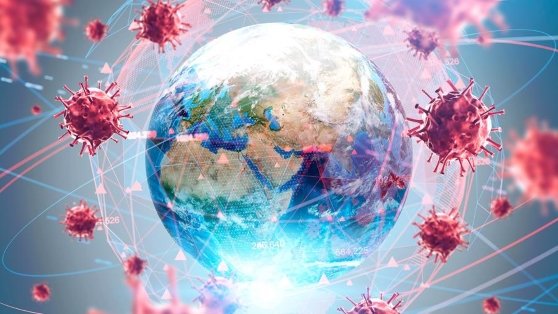
Last week, IRU launched a global call for immediate and concerted action by governments and global organisations to ensure the flow of goods keeps moving and to stabilise mobility networks.
Having reached out to over 30 key international organisations and institutions worldwide, our calls are unfortunately largely unanswered.
IRU Secretary General, Umberto de Pretto, said: “We are extremely concerned about the lack of coordination and individual approaches put in place by governments worldwide. The global community can only deal with this pandemic if it acts together”.
To help the road transport industry continue delivering the essentials, these are the actions that require immediate global coordination:
1. Harmonising safety standards and conditions for drivers
Today, drivers returning from international trips are often put in forced 14-day long quarantines, even if they don’t present symptoms. These measures need to be replaced with access to free testing and hygiene tools, to make sure drivers are able to continue working safely to keep delivering goods in time.
2. Keeping borders moving – no systematic checks on Covid-19
There is a patchwork of individual national approaches to border operations. Some countries have even closed their borders completely to road freight, some have closed them to drivers of certain nationalities, regardless of where the truck has come from.
Countries need to keep their borders open, harmonise inspection and health procedures based on international standards, and put a stop to systematic controls which lead to goods being stuck in long queues.
3. Helping transport companies – especially SMEs
Small and medium sized enterprises – often family run – are the backbone of road transport across the globe, moving goods and people and representing up to 90% of the industry. These SMEs must receive financial aid in the first place, to avoid imminent bankruptcies and lasting economic impacts on supply and mobility chains.
Many SMEs are likely to go bankrupt by the time the pandemic ends, unless they receive immediate financial support without excessive bureaucracy. Passenger transport companies are closing down completely, and more and more goods transport companies will also not survive the longer the pandemic continues.
Showing leadership
There needs to be strong and unequivocal leadership at a global level, by national governments, regional institutions and international organisations, to drive a coordinated global response and international standards.
We are starting to see some effective measures at a regional or national level, for example China has removed all road tolls across the country for all vehicles, until the pandemic ends. It has also put SMEs tasked with transporting essential goods and daily necessities as the top priority for financial aid.
Governments in North America have coordinated their border policies allowing only commercial vehicles or others with essential needs to cross. The EU has released guidelines on green express lanes for trucks, and some countries are lifting driving bans and delivery restrictions.
However, these measures need to be scaled globally, so that the sector can survive and continue delivering essential goods to the world’s population.
“Governments must look beyond their individual interests and take a holistic approach under coordinated action from our global institutions,” added Mr de Pretto. “This is a global crisis which requires global solutions.”
Source IRU





.jpg)




